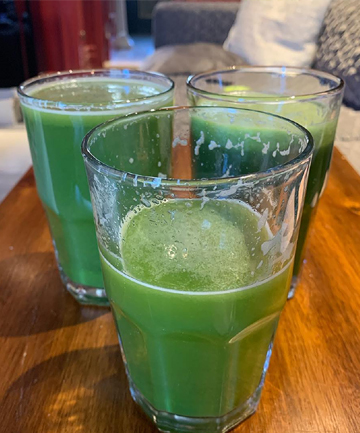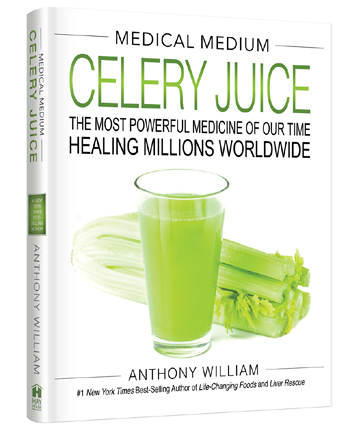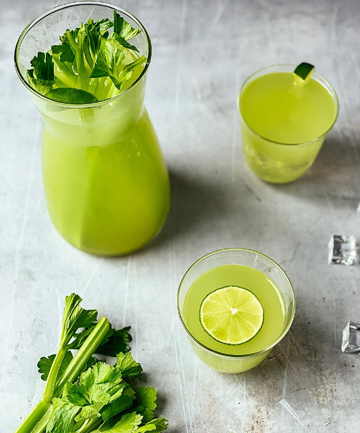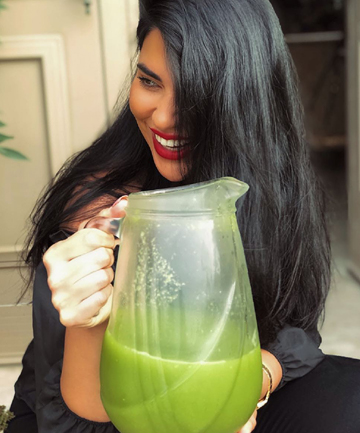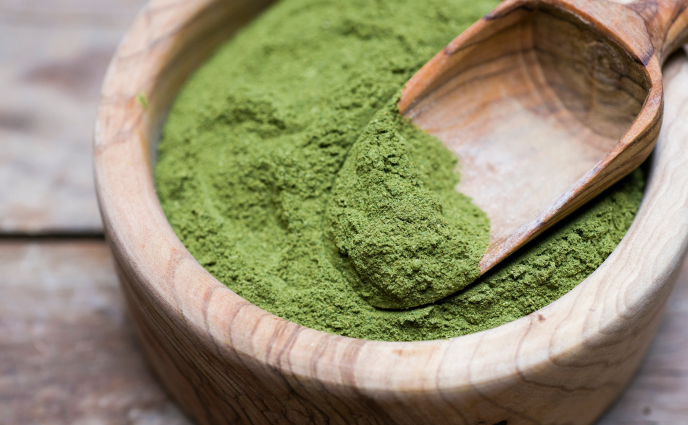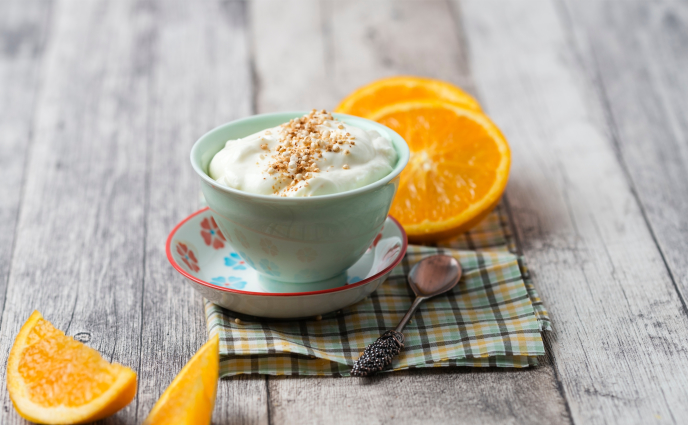Humble celery packs a lot of good stuff so it's easy to see why it's on wellness mamas' radars. First off, it consists of over 95 percent water, which means it's great for hydration. According to celebrity trainer (and creator of Taylored Fitness) Brooke Taylor, its high water content aids in gut health (helping with IBS, acid reflux, constipation etc), and it can also help with reducing inflammation. Tamara Rausch, MSc (Executive MBA and project manager at Lycored) also adds that celery is very fibrous, which means it's great for adding roughage to your diet.
In addition to providing hydration, celery has anti-inflammatory properties so it can aid in healing skin, says Taylor. Some have even reported that celery juice helps with their acne and eczema.
Celery also has a rich vitamin content, which can help with everything from sun damage (vitamin A) to heart and bone health (vitamin K). Staci Shacter, MS RD LDN, nutritionist at Carillon Wellness Resort, says that a person who has a 16 ounce drink of juiced celery can get 18 percent of their daily value of vitamin A, 32 percent of their daily value of vitamin B6, 38 percent of their daily value of vitamin C, 28 percent of their daily value of potassium, 30 percent of their daily value of riboflavin and over 100 percent of their daily value of vitamin K. (She points out that while these numbers are impressive, most varieties of vegetables when juiced would give similar or better numbers.)
Image via @therealdebramessing
Shacter says that the recent hype surrounding celery juice can mostly be attributed to "Medical Medium" Anthony William's claims about celery's purported mineral salts. Mineral salts are critical for the body to function at its best, according to William. He says that celery mineral salts are particularly powerful because they support the central nervous system and allow for information to travel across the body. He claims the mineral salt clusters can do big things including kill pathogens (connected to underlying causes of many chronic illnesses), function as an antiseptic, calm inflammation, neutralize toxins and balance the body's pH. Plus, he says celery juice can restore the digestive system and in turn calm anxiety and fear.
Image via Medical Medium
Shacter is open to the possibility of learning more about celery (and other fruits, vegetables and spices) but cautions against taking things at face value without scientific proof. She says that there is a growing body of research and that we are constantly learning about different chemicals in food and how they impact the body. For example, over a dozen phytochemicals have been identified in celery that have shown to have anti-cancer, immune, cardiovascular and anti-inflammatory benefits. (Though it's worth pointing out that other phytochemicals in fruit and veggies have shown similar things.)
Additionally, celery is very high in naturally occurring nitrates. There is evidence that juicing vegetables turns nitrates into nitric oxide aka "the good guys," which have shown to benefit the brain, cardiovascular system and immune system.
That said, Celebrity Nutritionist and Founder of Nutritious Life Keri Glassman MS, RD, CDN says that there hasn't been actual scientific research on the benefits of adding celery juice to a diet. "Despite what you might think from reading about it on social media, celery juice is not a miracle drink," she says. "If it's an added healthy choice to your daily routine, and especially if it replaces another unhealthy habit , then go for it... [but know one habit is not] going to be the 'magic bullet' to perfect health." In her view, we should focus on an overall healthy diet abundant in fruits and vegetables, whole grains, and quality protein sources.
Image via @jennadewan
Fresh is best for celery juice in terms of taste and health benefits. Bottled juices might be convenient, but Nutritionist Sonja Ricke from Grand Resort Bad Ragaz says that bottled stuff will always be pasteurized — and pasteurization lowers the content of nourishing vitamins and secondary plant compounds. And if you're making your own juice, make sure to drink it right away: Rausch says it's best to consume fresh celery juice 15 to 20 minutes after it has been prepared.
Additionally, when blending your own celery juice, you know what you're going to get. Glassman says that at home it's possible to blend the whole celery and not remove any of the nutritional fiber in it. On the other hand, with bottled celery juice, the fiber could be removed. Furthermore, it could contain added sweeteners or even colors. Oh and don't be fooled by bottles proclaiming "rich in vitamin C:" She says that the vitamin C has most certainly been chemically added.
Image via @oatsandthyme
No one wants a chunk in their smooth celery juice, but we still want all that virtuous fiber. Choose crisp, preferably organic celery and do not peel it or remove leaves. The latter are a fantastic source of vitamin A, says Rausch. After washing the celery, try soaking it in cold water for a few minutes then scrub it. Next, blend celery in a juicer or blender. Some might choose to guzzle straight-up celery juice, though it can be blended with other fruits and veggies like apples or carrots to suit your taste.
No juicer? Shacter says that juicing offers more vitamins, minerals and phytonutrients per serving than a smoothie. Juicers separate the good stuff from insoluble fiber which allows us to consume more nutritional content. When using a blender, juice will often need to be strained to separate the parts.
Image via @natbasma


